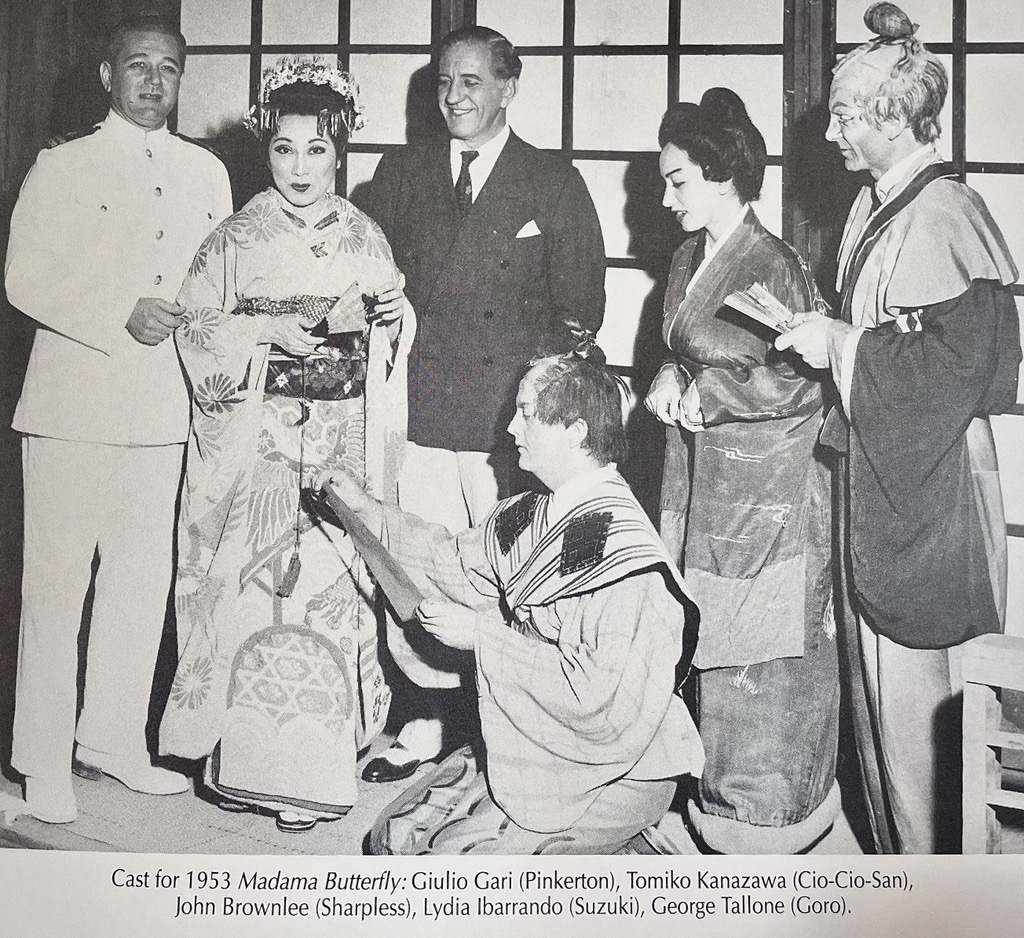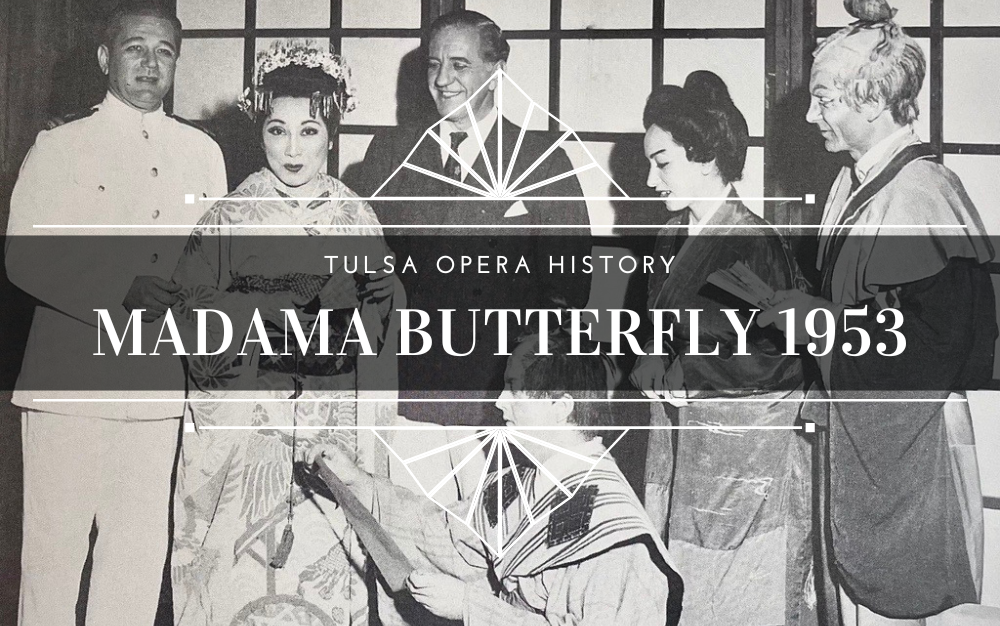On November 19 and 21, 1953, Tulsa Opera reached a significant milestone in its history with the presentation of Puccini’s Madama Butterfly. For this landmark performance, Tulsa Opera engaged an impressive roster of imported talent.
The role of the Japanese geisha, Madama Butterfly, was performed by Metropolitan Opera soprano Tomiko Kanazawa, a significant casting choice as it was unusual to hear a Japanese native in the role at the time. More stars from the Metropolitan Opera for this performance were Austrian tenor Giulio Gari, and Australian baritone John Brownlee, who took on the roles of Pinkerton and Sharpless, respectively. The New York City Opera contributed Lydia Ibarrando as Suzuki and George Tallone as Goro, and local singers filled the comprimario roles. For the first time, a stage director was brought in from New York: Anthony Stivanello. A renowned director known for his efficiency and skill in staging productions with limited rehearsal time, Stivanello was known nationwide as “Mister Instant Opera” and was a frequent guest at Tulsa Opera over the next 20 years.
Stivanello’s expertise in quickly and effectively staging operas became invaluable to Tulsa Opera, allowing the company to maintain high production values despite budget constraints. Conveniently, he also owned a costume company, and saved Tulsa Opera money by providing a package deal for shows he directed. He was legendary among the choristers for his uncanny ability to glance quickly at a singer, dig into a trunk, and retrieve a costume that almost always fit.
There was naturally much concern about whether the upcoming Butterfly production would be a financial success. The company had continued to grow, with an ever-increasing list of patrons and more than double the number of outlying community chairmen, including representatives from some Kansas and Arkansas towns. Still, the sudden cost of so many highly paid professionals had the potential to be a bigger challenge than the growing company could manage. Nevertheless, Tulsa Opera plunged ahead, convinced that the risk was necessary to enhance its national status as the Board had envisioned.
The success of Madama Butterfly not only marked a new era for Tulsa Opera but also demonstrated that it was possible to attract top-tier performers for all major roles. This achievement set a precedent for future productions and signaled a new phase of growth and national recognition for the company.

Our 2024-25 season features even more amazing talent, including some of the best imported and local artists Tulsa has to offer. Don’t miss your chance to hear the stars of tomorrow TODAY. Subscriptions are on sale now – purchase online here or call our box office at (918) 582-3133 to get yours today!
